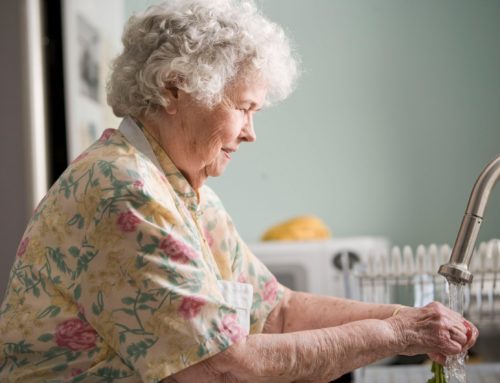Geriatric Nutrition: The Importance of Nutrient Density for Older Adults
As we age, our nutritional needs change, and it becomes increasingly important to maintain a balanced and nutrient-dense diet. Nutrient density refers to the amount of nutrients per calorie in a particular food. For older adults, consuming nutrient-dense foods is particularly important, as they may not consume enough food to meet their nutrient needs due to a decreased appetite or other factors. In compassionate home care, understanding the importance of nutrient density and providing nutritious meals is essential for maintaining good health and quality of life for older adults.
Fruits and vegetables are particularly important as they are rich in vitamins, minerals, and fiber.
These foods not only provide essential nutrients, but they also help maintain gut health, promote regular bowel movements, and reduce the risk of chronic diseases such as heart disease, diabetes, and cancer. In compassionate home care, caregivers should aim to provide a variety of colorful fruits and vegetables to ensure that older adults receive a range of essential nutrients. For example, leafy green vegetables such as spinach and kale are excellent sources of vitamin K, which is important for bone health, while orange and yellow fruits and vegetables, such as sweet potatoes and oranges, are rich in vitamin C, which is important for immune function.
Whole grains, such as whole wheat bread, brown rice, and oatmeal, are also nutrient-dense and provide fiber, vitamins, and minerals.
These foods can help regulate blood sugar levels, promote satiety, and reduce the risk of chronic diseases such as heart disease and type 2 diabetes. In compassionate home care, caregivers should encourage older adults to choose whole-grain options instead of processed foods, such as white bread and white rice, which are lower in nutrients.
Lean protein sources such as chicken, fish, eggs, and beans are also essential for older adults.
Protein is necessary for maintaining muscle mass and strength, which is particularly important as we age. In compassionate home care, it’s important to provide protein-rich meals and snacks throughout the day to ensure that older adults meet their daily protein needs. Cottage cheese, Greek yogurt, and nuts are also excellent sources of protein that can be incorporated into meals and snacks.
In conclusion, nutrient density is essential for maintaining good health and quality of life for older adults in compassionate home care. Caregivers should focus on providing nutrient-dense meals that include a variety of foods from all food groups, with a particular emphasis on fruits, vegetables, whole grains, and lean protein. By paying attention to the nutrient density of the foods they provide, caregivers can ensure that older adults receive the essential nutrients they need to maintain good health.






